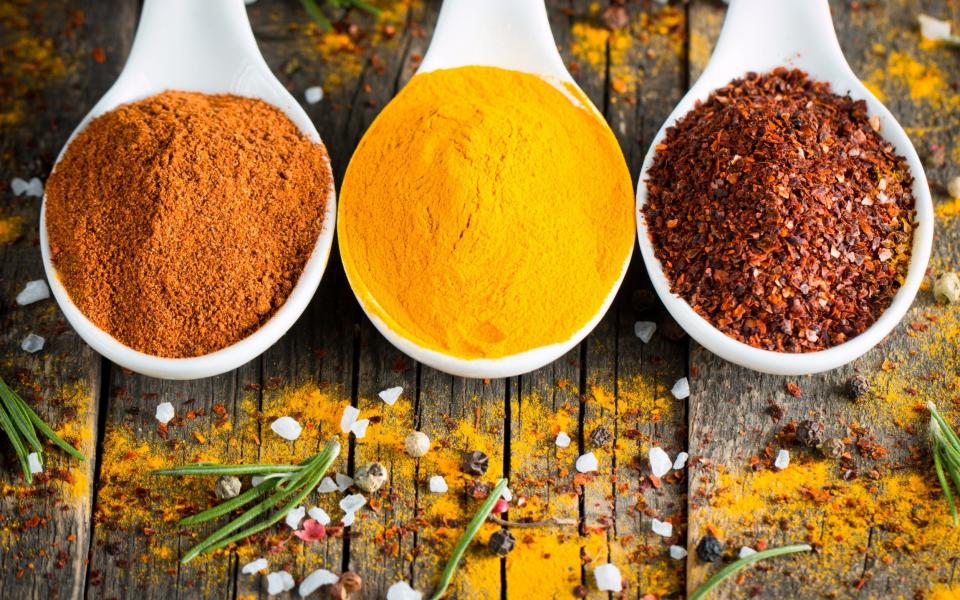Three easy ways to improve your gut health

Our gut bacteria play an important role in keeping us healthy. Aside from extracting nutrients from food, the microbes in our digestive tract support our immune system and protect us from harmful bugs.
We’re often told to eat more fermented foods, such as kimchi (fermented cabbage) and kefir (fermented milk), but there are other, easier ways to nurture your gut bacteria and improve your gut health …
Pop some peanuts

If you eat peanuts regularly then your gut is likely to be rich in Ruminococcaceae, a group of bacteria linked to healthy liver metabolism and immune function.
A new study published in the journal Clinical Nutrition found that a daily 1oz (28g) snack of peanuts increased the levels of this important bacteria in the gut, compared with a higher carbohydrate snack of cheese and crackers.
Of course, you can munch peanuts straight from the packet, but this tasty trail mix is a little more exciting and also includes heart-healthy walnuts, Brazil nuts and decadent dark chocolate. Combine 75g roasted peanuts, 50g walnut pieces, 25g chopped Brazil nuts and 50g good quality dark chocolate chips in an airtight container. A portion size is around 30g, 175 calories, or a small handful, and the mix will keep for several weeks.
Spice things up

Science is now catching up with the cooking traditions of India and parts of South East Asia, where the health benefits of herbs and spices have long been recognised. In a study from Penn State University’s department of nutritional science, participants were given blends of herbs and spices – such as cinnamon, ginger, cumin, turmeric, rosemary, oregano, basil and thyme – in various doses. After four weeks, participants showed an increase in gut bacteria diversity. The effect was particularly evident in those on higher doses of ¾ to 1½tsp per day.
Adding herbs and spices to your meals is great, but they can degrade if kept too long, or if not stored properly. The shelf-life for herbs and spices varies; the best way to tell if they are still good is to give them a sniff – if they don’t have much aroma, chances are they won’t taste of much either, nor will they have the potency to deliver maximum health benefits. Keep them in airtight containers in a dark cool place, away from any heat sources.
Eat more prebiotic foods

Prebiotic foods like mushrooms, onions, garlic, asparagus, leeks, apples and wholegrains contain a kind of soluble dietary fibre that serves as a food source for our gut bacteria, leading to a healthier digestive system.
A great lunch option is to make a batch of gut-healthy, prebiotic-rich soup. Using a food processor, finely chop a peeled onion and a large leek (ends removed). Place a large saucepan on a medium heat, add 1 tbsp olive oil, then tip in the onion and leeks and sauté gently for two to three minutes. Now chop 125g asparagus and one courgette, both with the ends removed, in the food processor and add to the pan.
Stir all the vegetables together and sauté for a further two to three minutes. Add 800ml vegetable stock made from two cubes and a 250g pouch of pre-cooked mixed grains to the pan and stir well. Season with salt and pepper, bring to the boil then turn down and simmer for 20 minutes. Finally, add the juice of a lemon and serve.

 Yahoo News
Yahoo News 